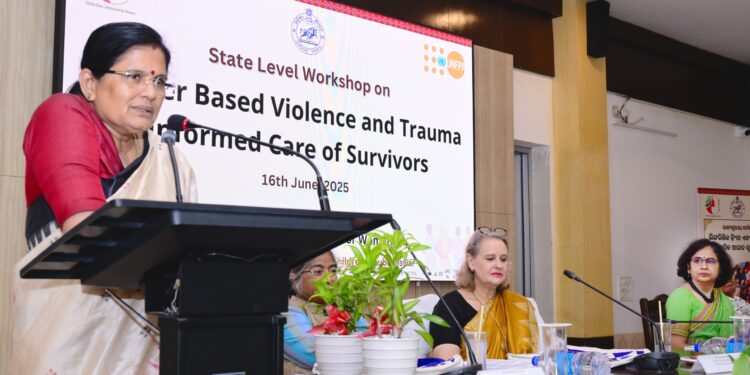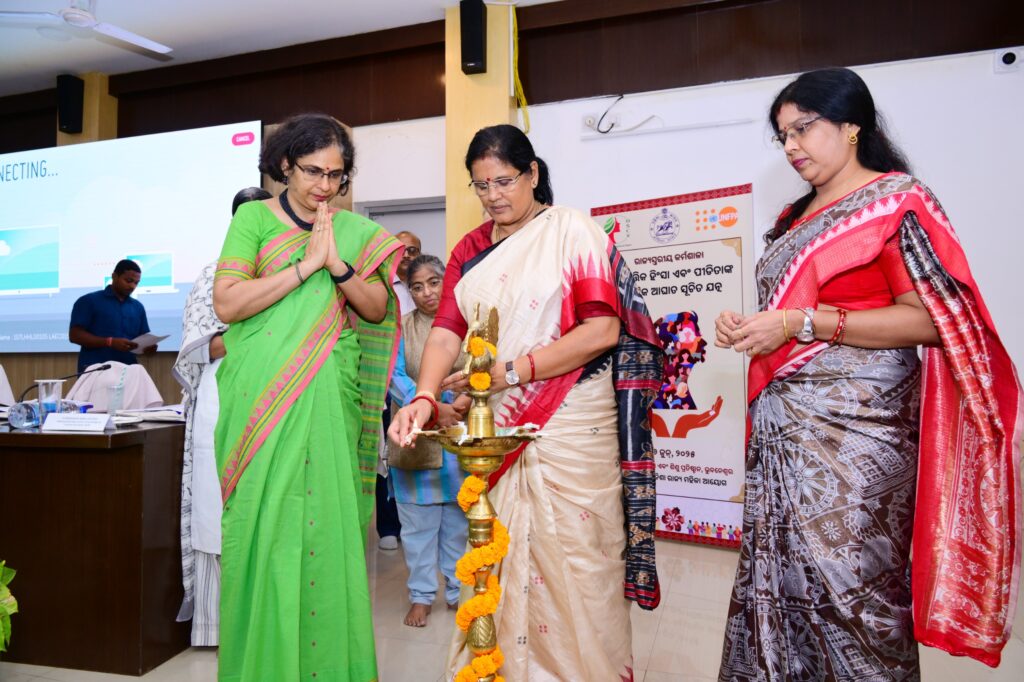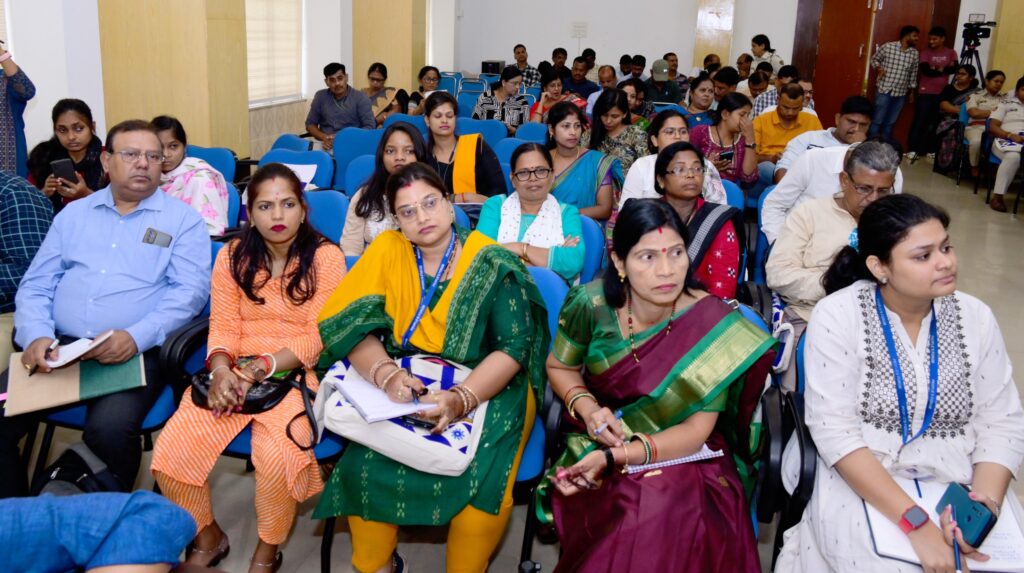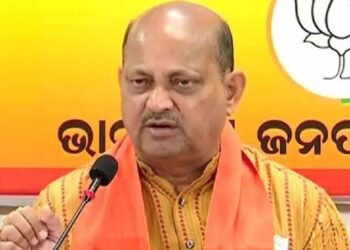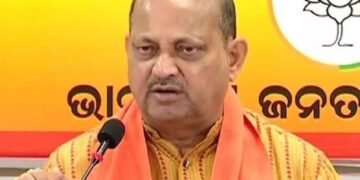A state-level workshop addressing gender-based violence and trauma care for survivors was held today at the State Women and Child Institute in Bhubaneswar, organised under the aegis of the Odisha State Commission for Women.
The event saw participation from key stakeholders, including policymakers, law enforcement, legal experts, mental health professionals, and representatives from civil society organisations.
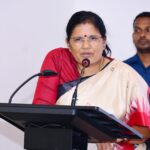
“Our primary goal is to restore survivors’ confidence and provide them a path to live with dignity by equipping them with skills,” Parida stated. She also urged police personnel to handle cases of gender-based violence with sensitivity, ensuring justice is served compassionately.
Shubha Sharma, Principal Secretary of the Women and Child Development Department and Chairperson of the Odisha State Commission for Women, stressed the need for coordinated efforts across government departments to curb gender-based violence. “Beyond empathy, we aim to understand survivors’ mental state and create a safe environment for them,” she said, highlighting the workshop’s objective.
Inspector General of Police (Women and Child Protection Wing) Saini S. expressed concern over the rising cases of domestic violence, underscoring the need for a societal mindset change to address this issue effectively. Andrea M. Wojnar, UNFPA India Representative and Country Director for Bhutan, commended Deputy Chief Minister Parida’s efforts toward women’s empowerment and emphasised collective responsibility in eliminating gender-based violence.
Padma Shri awardee and founder of Hyderabad-based Prajjwala, Sunita Krishnan, participated as a resource person, delivering an insightful presentation on tackling gender-based violence and engaging participants in detailed discussions.
The workshop brought together diverse stakeholders, including district protection officers, healthcare providers, legal professionals, and representatives from Sakhi-One Stop Centres and Shakti Sadan.
The event underscored the importance of a multi-sectoral approach to ensure survivor-centric support and foster a safer society.

